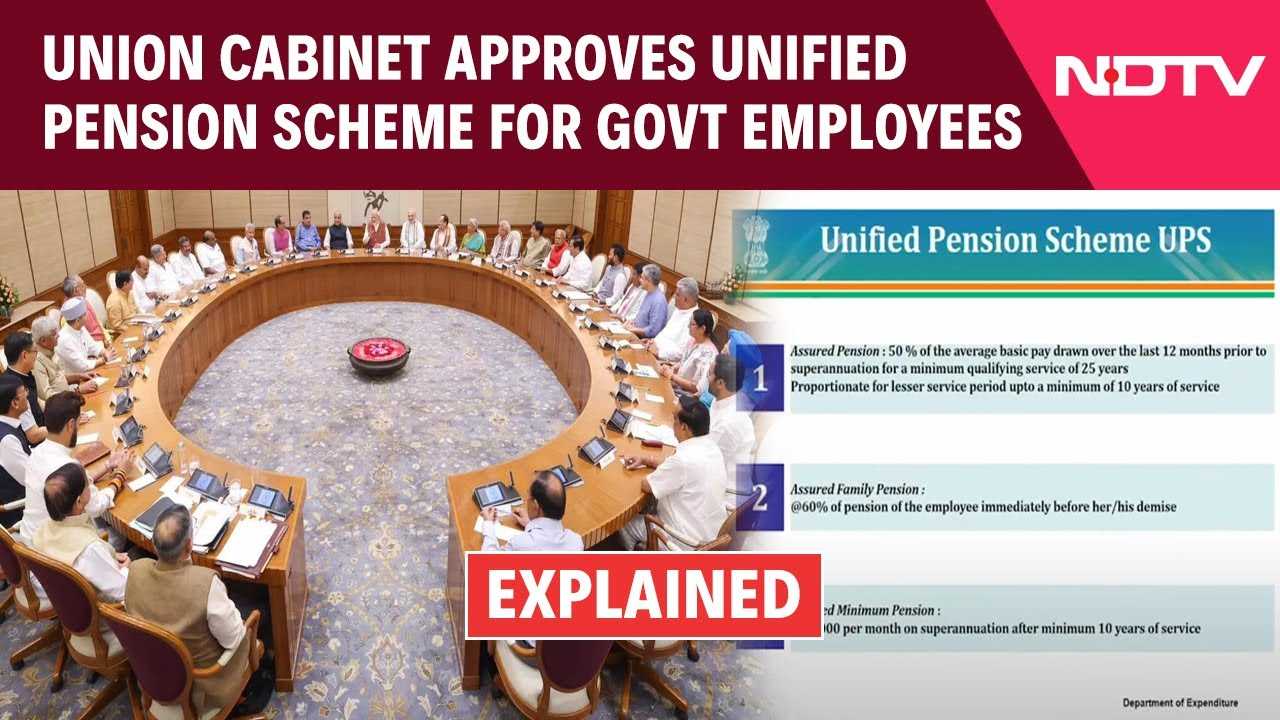Politics
Union Cabinet Approves New Unified Pension Scheme for Government Employees

In a significant move, the Union Cabinet has approved the Unified Pension Scheme (UPS), aimed at securing financial stability for government employees. This decision was announced on August 24, 2024, by Union Minister Ashwini Vaishnaw, who emphasized that the scheme will ensure a guaranteed pension of 50 percent of a government employee’s salary.
The newly introduced UPS is expected to initially benefit approximately 230,000 central government employees and has the potential to expand its reach to 900,000 employees if state governments decide to adopt it. Moreover, employees will have the option to choose between the Unified Pension Scheme and the existing National Pension System (NPS).
Minister Vaishnaw highlighted that a committee was established to craft the framework of the UPS, which included extensive consultations with various organizations, including the Reserve Bank of India and the World Bank, through 100 meetings.
The UPS will provide two key benefits: an assured pension and an assured family pension. Employees with a minimum of 25 years of service will receive a pension equating to 50 percent of their average basic pay over the last year of service. Those with less than 25 years of service will receive a proportional pension.
In the unfortunate event of a government employee’s passing, the spouse will be entitled to a family pension equal to 60 percent of the deceased employee’s pension. Additionally, a minimum pension of Rs 10,000 per month will be guaranteed for employees with at least 10 years of service.
Further enhancements in the UPS include inflation indexation for both the assured pension and family pension, ensuring that these benefits keep pace with economic changes. Retirees will also receive Dearness Relief, based on the All India Consumer Price Index for Industrial Workers, similar to current employees.
As a supplementary benefit, employees will receive a lump sum payment at retirement, calculated based on their months of service, which will not counterbalance their assured pension.
Criticism of the NPS, which replaced the Old Pension Scheme in 2004, has been growing among government employees. The NPS requires contributions from both employees and the government and does not guarantee pension outcomes. Its effectiveness has led to the reinstatement of the Old Pension Scheme by some state governments due to dissatisfaction among employees.
The UPS, while retaining characteristics of a funded scheme, also reflects elements of the previously existing Old Pension Scheme, aiming to address employee concerns while ensuring fiscal responsibility.
Finance Secretary T V Somanathan noted that employees who retired under the NPS since its inception in 2004 will have their arrears reconciled with the amounts they have already received. Importantly, once a choice between the UPS and the NPS is made, it cannot be altered, meaning that government employees must carefully consider their options.
The current implementation of the UPS is focused on central government employees, but provisions are in place for states to opt into the scheme in the future.












